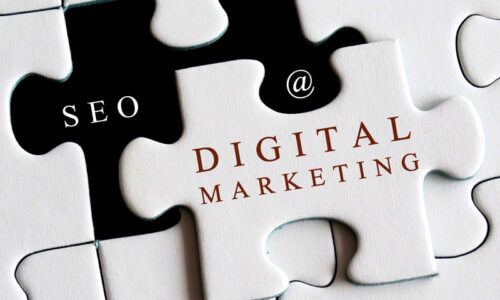How to Use AI in Marketing: The Role of Ethics, Values, and the Human Touch

The Role of AI in Marketing: Ethics, Value, and the Human Touch
Artificial Intelligence is transforming marketing at an astonishing pace. From automating content creation to predicting customer behaviour, AI is a powerful tool that can increase efficiency, provide valuable insights, and streamline processes. But as with any tool, its value lies in how it is used. The key to making AI work for marketing isn’t blind adoption but careful integration, guided by ethical considerations, strategic thinking, and a strong human touch.
AI as a Research and Strategy Partner
One of AI’s greatest strengths in marketing is its ability to process vast amounts of data at speed. It can analyse consumer trends, identify emerging patterns, and even suggest content ideas based on audience interests. But data without context is just noise. AI can provide information, but it cannot determine what is truly relevant, what aligns with a brand’s voice, or what will resonate on a deeper level with customers. That’s where human expertise comes in.
Using AI for research allows marketers to work more efficiently, but the final strategy should always be shaped by human intelligence. A well-informed marketer knows which trends are worth pursuing and which are just fleeting distractions. AI can assist in the process, but the direction must come from experienced professionals who understand their market and their audience.
Ethics and Responsible AI Use
AI-generated content and automation can be a game-changer, but they also raise ethical questions. Poorly managed AI risks creating misinformation, bias, or content that feels generic and detached. Transparency is essential—customers deserve to know if they are engaging with AI-generated content. More importantly, businesses must ensure that AI tools are used responsibly, avoiding misleading information, respecting copyright, and maintaining brand integrity.
Another ethical concern is data privacy. AI thrives on data, but businesses must be mindful of how they collect, store, and use customer information. Compliance with GDPR and other data protection regulations is not optional, and trust is easily lost if customers feel their privacy is being exploited. Marketers should use AI to enhance personalisation while maintaining clear, ethical boundaries.
The Human Touch: Creativity and Critical Thinking
AI can generate copy, design images, and even write scripts, but creativity is not simply about production—it’s about originality, emotional intelligence, and storytelling. A great marketing campaign isn’t just technically correct; it’s compelling, engaging, and meaningful. AI lacks intuition and the ability to understand cultural nuances or emotional depth. The best marketing will always require human oversight to shape AI-generated ideas into content that connects on a deeper level.
Additionally, AI is only as good as the prompts and direction it receives. Poorly framed instructions lead to generic output, while well-thought-out queries can result in useful insights. Marketers who embrace AI should see it as a collaborator rather than a replacement, using it to enhance their work rather than automate creativity.
Moving Forward: The Role of AI in Future Marketing
AI will continue to evolve, and marketers must evolve with it. The future of marketing isn’t about choosing between AI and human creativity but understanding how to integrate the two effectively. AI can help with data analysis, automation, and even idea generation, but it should be guided by experienced professionals who can question, refine, and add the necessary creative and strategic direction.
Businesses that use AI intelligently, balancing automation with authenticity, data with intuition, and efficiency with ethics will set themselves apart. Marketing isn’t just about getting content out quickly; it’s about building relationships, fostering trust, and delivering value. AI can support that goal, but it cannot achieve it alone.
By embracing AI as a tool rather than a shortcut, marketers can enhance their work, drive better results, and ensure that technology serves strategy, not the other way around.
About the Author: Steph Briggs
I’m Steph – a digital marketing consultant, copywriter, and small business cheerleader with over 20 years of experience in retail, ecommerce, and communications. I help brilliant, ambitious business owners turn online chaos into calm with smart strategies, sparkling SEO, and copy that actually converts.
After running my own successful interiors brand (hello, Shopify obsession), I made the leap to help other small businesses grow their digital presence – without the jargon or overwhelm. From optimising product pages and sharpening your SEO, to telling your brand story in a way that gets clicks (and sales), I bring creative flair, commercial insight, and a hefty dose of can-do energy to every project.
Whether you’re a one-woman powerhouse or a growing ecommerce team, I’m here to make marketing feel less like a mystery and more like your secret weapon.
📦 Shopify websites
✍️ SEO copy that ranks and reads beautifully
🛍️ Retail & ecommerce strategy
💡 Practical, actionable advice (no fluff in sight)
If you’re ready to stop second-guessing your marketing and start seeing results, let’s chat.
If you’ve enjoyed this have a look at The Ultimate Guide to SEO for Small Business Owners





